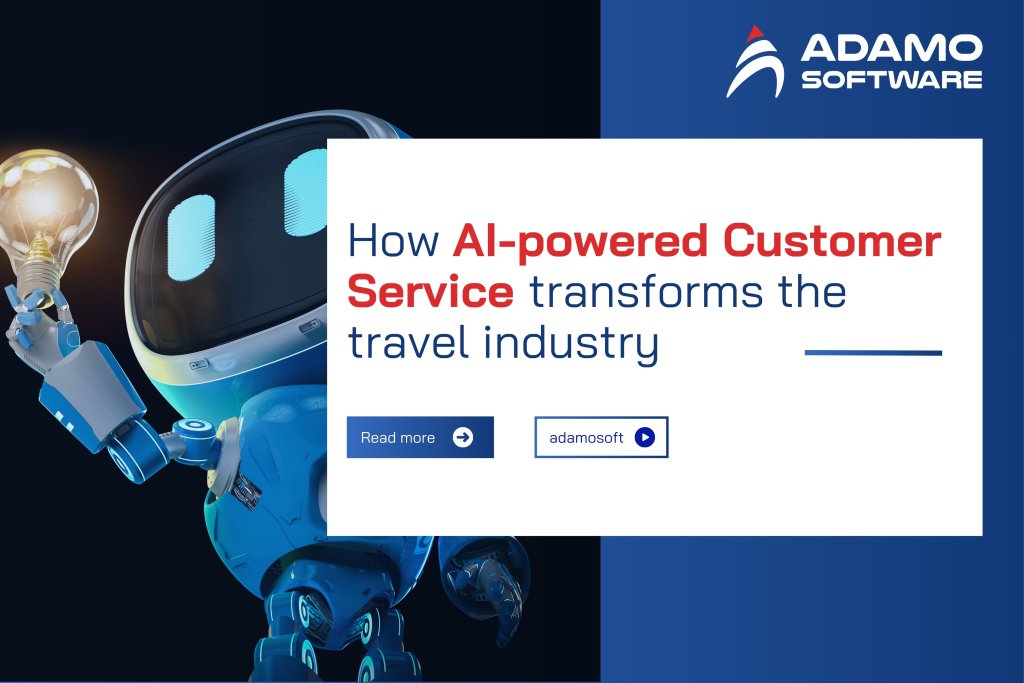GDS vs NDC: A Clash of Traditional and Modern Approaches
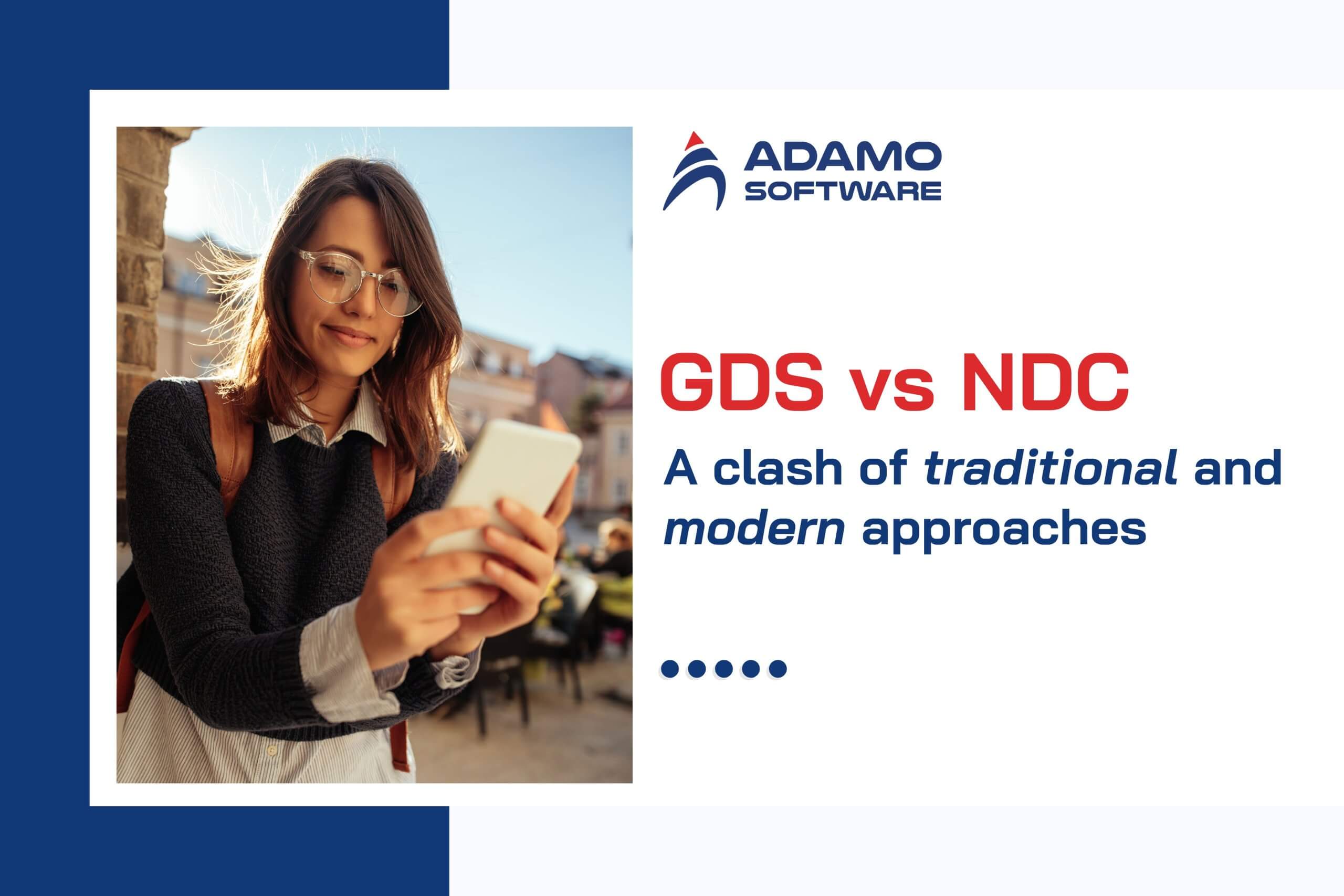
Regarding the travel industry, the question of the future is opening new questions about the role of technology. One of the significant issues in this evolution is GDS vs NDC, the two travel distribution models. However, out of the traditional one-sided structure of GDS, a novel and flexible solution, NDC, is becoming more popular.
There is a significant difference between GDS vs NDC. These differences are important to the airline, travel agents, and end users. GDS, at its most elementary level, is the travel agency’s overall platform for booking flights, hotels, and cars. On the other hand, NDC is the system that assists the airline in selling services directly to the customer. The positive aspects of the systems mentioned above are considerable, although the systems seem oriented towards different needs and concerns.
We describe the two systems in this article: the major characteristics of GDS vs NDC, their advantages, and the companies that use these systems. We also give you the option to compare GDS vs NDC and see how these systems affect the travel industry.
I.GDS vs NDC: Understand the overview
The travel industry depends on sophisticated systems that can interconnect various sectors like airlines, travel agents, and consumers. It is essential to know the definition of GDS and NDC, as these two are the technologies that exist to meet various requirements. GDS stands for an old-school, centralized method of distributing travel services. NDC is the new innovative model for facilitating and customizing travel services. This section gives a system of each system, its characteristics, and its advantages.
1. What is GDS?
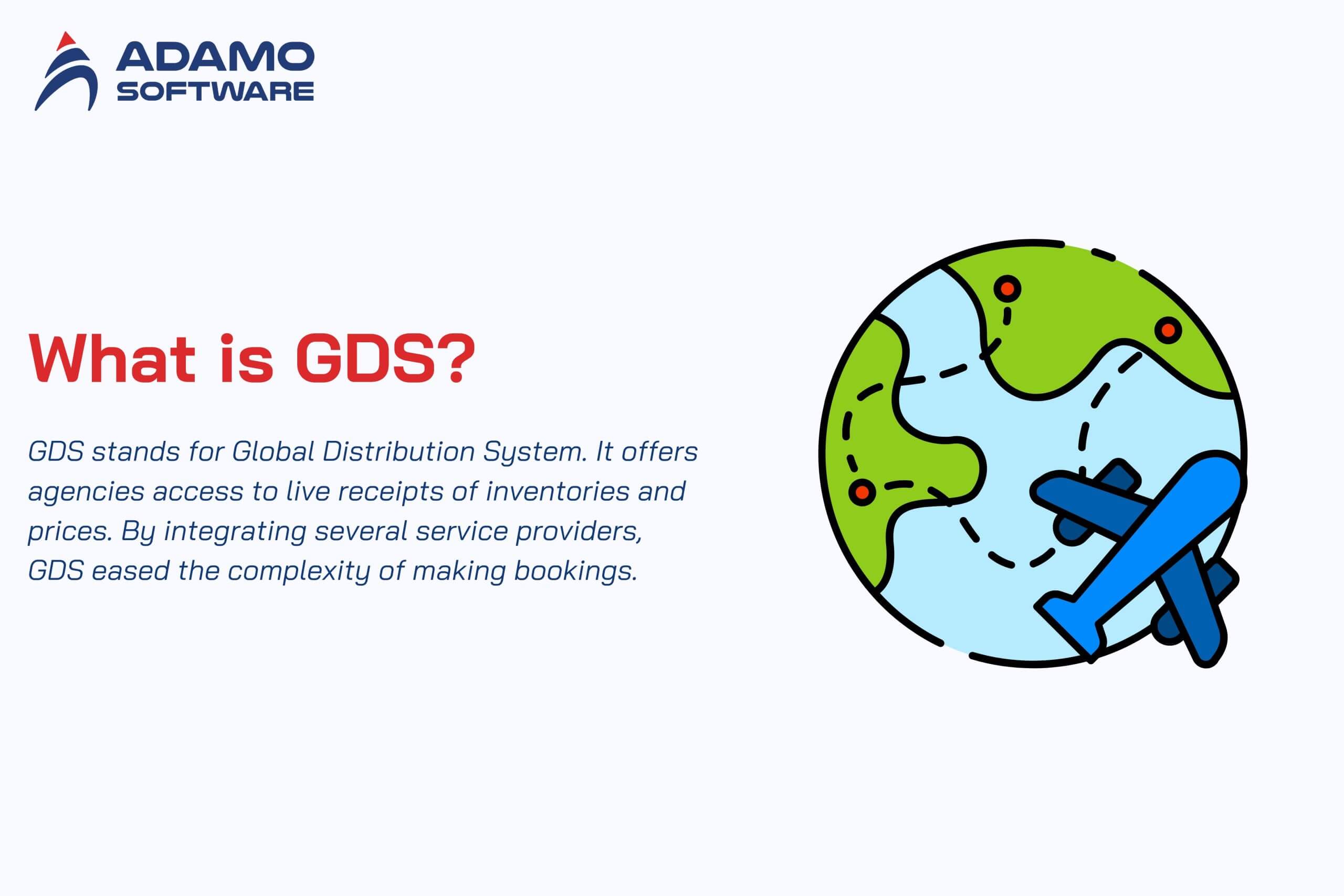
GDS stands for Global Distribution System, which is an information technology application. It primarily communicates with travel agents and suppliers like airlines, hotels, car rentals, and all other travel-related businesses, including by wire. It has been the support system of the travel industry for many years. GDS system offers agencies access to live receipts of inventories and prices. By integrating several service providers, GDS eased the complexity of making bookings. Travel products are made available globally.
Unfortunately, GDS sits at the center of the GDS vs NDC discussion. It represents an established and very effective means of managing travel distribution. They can provide standard content needed by their customers in the travel businesses.
2. Key features of GDS
The key features of GDS highlight its strength as a centralized, efficient system that connects travel agents and suppliers worldwide:
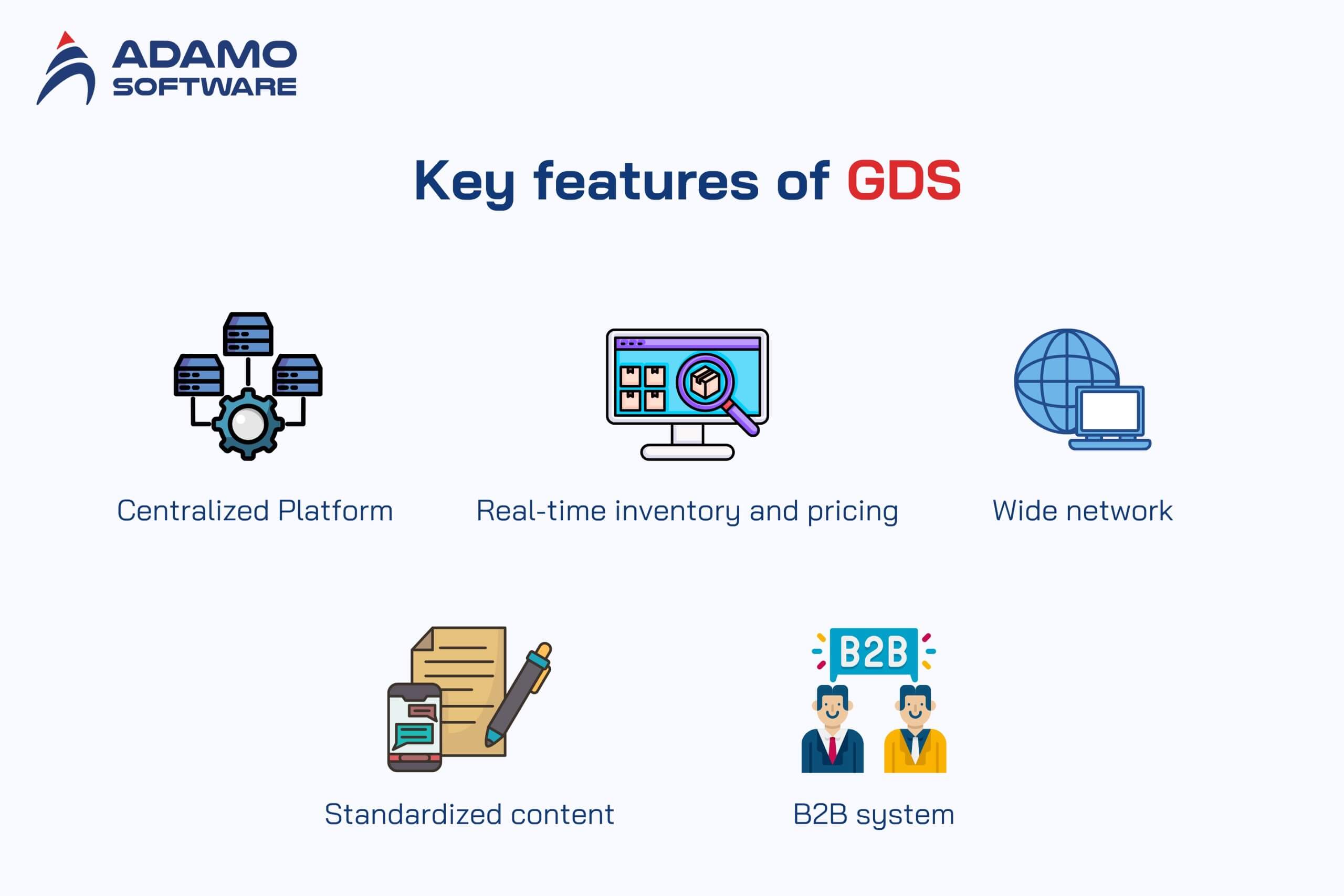
- Centralized Platform
GDS is also a booking solution where travel-related content such as flight, hotel accommodation, car hire, and so on is collected in one place. Developers can offer a centralized interface for traveling agents. This helps travel agents spend less time looking for various services on different networks.
- Real-Time Inventory and Pricing
The absence of any middleman or markup means that through GDS travelers receive real-time availability and prices from the airlines, hotels… Agent-customer communication in real-time means getting the right information and service bookings do not have to wait.
- Wide Network
GDS links travel agents with thousands of other airlines, hotels, and car rental companies. This huge network means that agents are well positioned to offer solutions that will address customers’ needs.
- Standardized Content
It makes the same content available across the linked services. This means that making special offers or offering different prices for particular services does not result in differences in services supplied. It proves super helpful in attaining the trust and reliability of the agents and customers on the platform.
- B2B System
It is crucial to emphasize that GDS is mainly intended for a B2B environment. It enables travel agencies to purchase services on behalf of customers and provide integrated ‘from start to finish’ solutions.
These features make GDS a necessity for old-fashioned travel agencies, especially in the ongoing GDS vs NDC controversy.
3. Benefits of GDS
The benefits of GDS demonstrate its value for businesses that require efficiency and reliability:
- Streamlined Booking Process
The implementation of GDS minimizes the amount of work done manually through the searches, comparisons, and bookings of travel services. This automation reduces the time that is needed to complete transactions. It also promotes accuracy in those transactions.
- Global Reach
GDS Hospitality connects travel agencies to airlines, hotels, car rental companies, and others. This enables people globally to access a floating ticket without any hindrance.
- Secure and standardized transactions
This requires a secure GDS environment that provides consistency to payments, ticketing, and cancellation parameters. Such reliability is important to establish credibility with the customers.
- Comprehensive Packages
Through services consolidation, GDS enables the agent to package the flights, hotels, and transport services in one lot.
- Time-Tested Technology
Known for its years of applications in the travel industry, GDS has made a typical work of responding to complex travel requirements.
The explanation of the traditional approach of GDS as the means that would not require changes in business looking for stability and tried and tested business models is the focus of the author while presenting the GDS vs. NDC debate.
4. What is NDC?
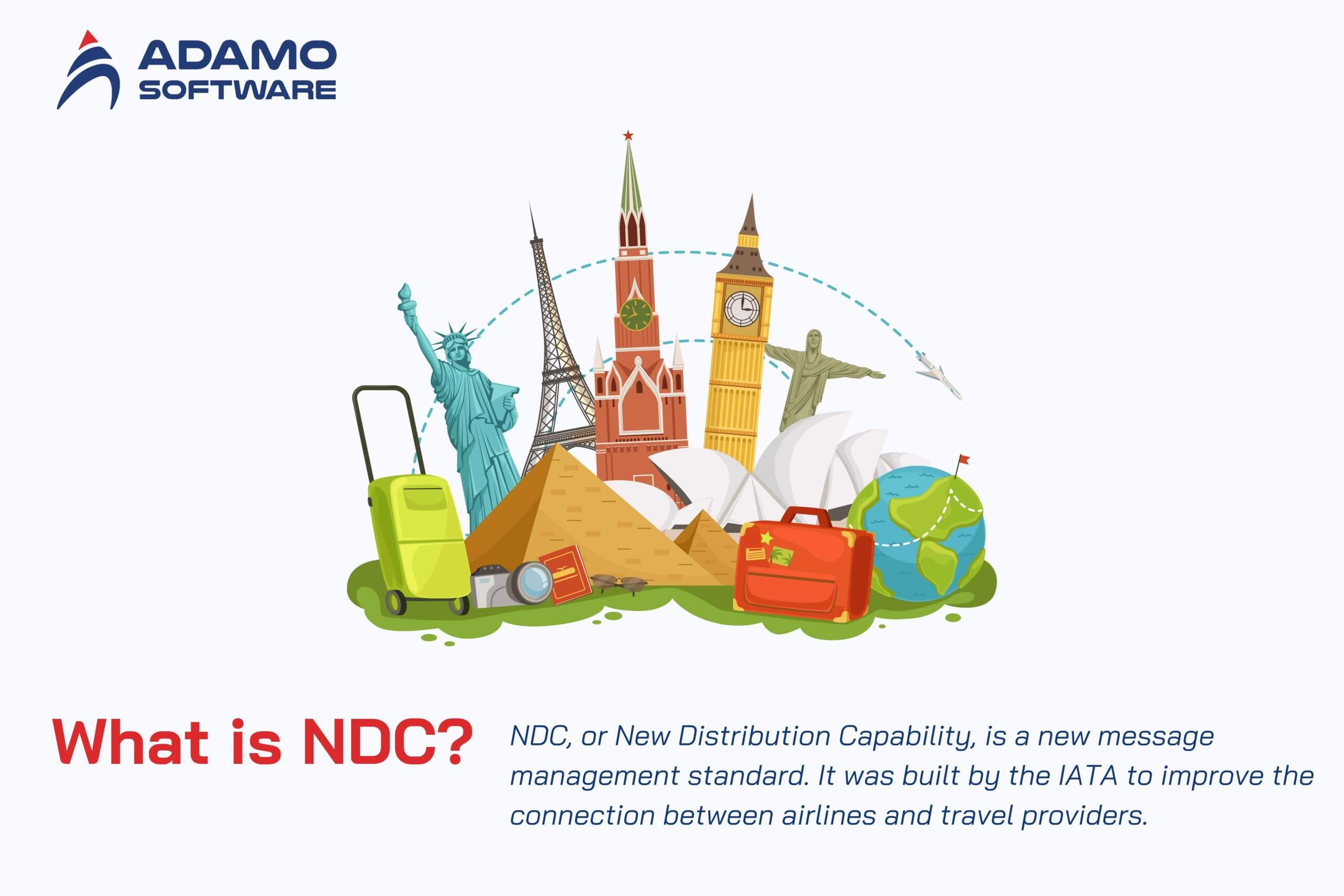
NDC, or New Distribution Capability, is a new message management standard. It was built by the International Air Transport Association (IATA) to improve the connection between airlines and travel providers. However, NDC will empower airlines through preferred client-consumer-based services and price setting to consumers.
By doing so, it means NDC is the future of travel business distribution in the GDS vs NDC debate. It is flexible, tailored to the customer’s experience, and centered on rich content delivery.
5. Key features of NDC
The key features of NDC demonstrate its focus on innovation, flexibility, and customer-centric solutions:
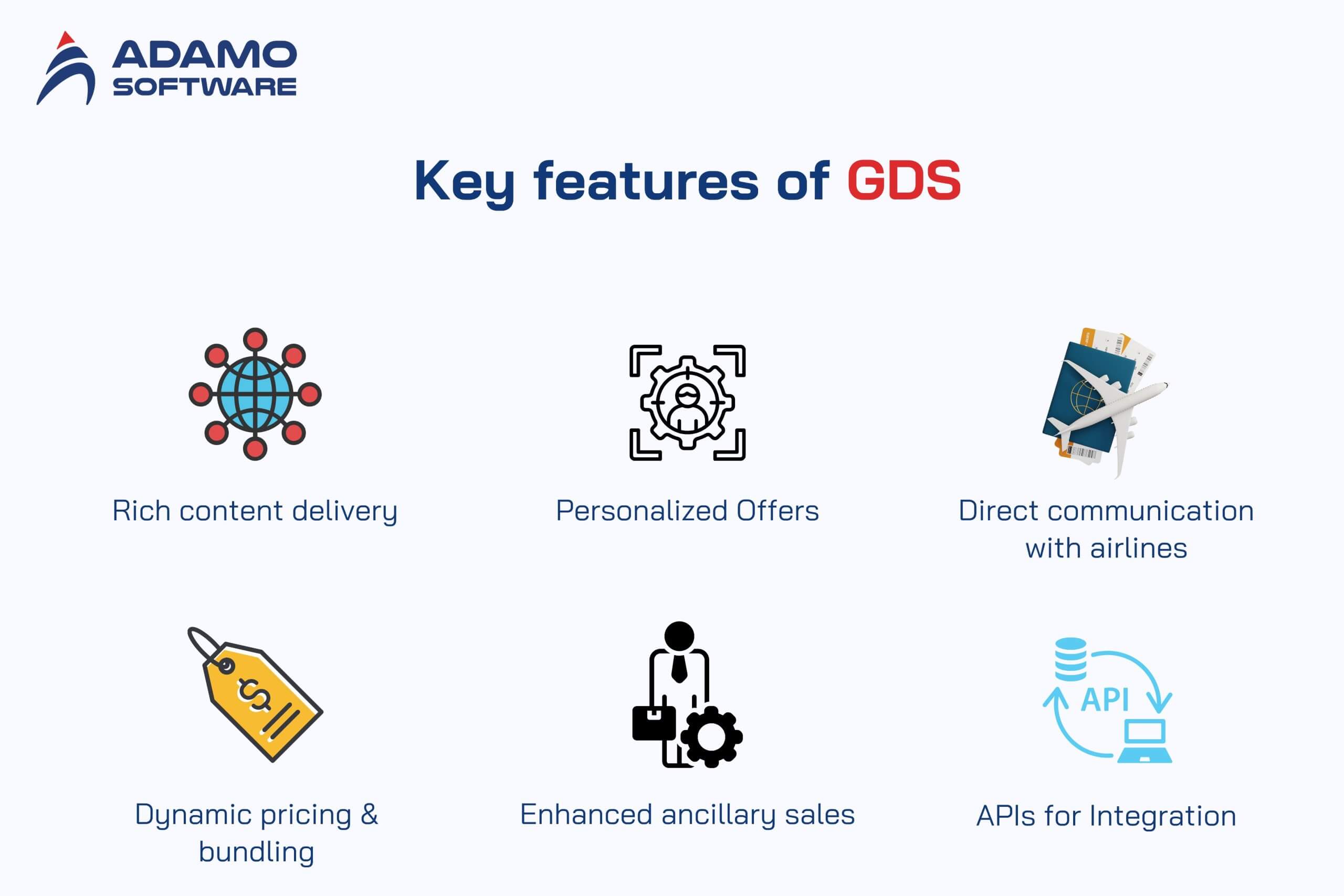
- Rich Content Delivery
NDC allows ancillary services provision from the airline. They can specify the full-track service offer from baggage fees, meals, accommodation services, and class or cabin layouts and configurations. It provides customers with information to make the right decision regarding their transport.
- Personalized Offers
For instance, with NDC, airlines can bundle, and price services based on the customers’ choice history and behaviors. For instance, customers with high-frequency rates may have a chance for special offers or what can improve satisfaction.
- Direct Communication with Airlines
NDC gives the ability to work directly with the airlines instead of GDSs or other companies connecting with it. Such a direct link makes customers view correct and real options in advance without any third-party interference.
- Dynamic Pricing and Bundling
Airlines can introduce cost per increment and varying prices charged depending on the flight demand. Moreover, NDC’s capabilities include service offerings. For instance, packaging a flight ticket, a meal, and Wi-Fi connectivity as one service at a cheaper price.
- Enhanced Ancillary Sales
NDC encourages bag drop and pre-pub group check-in services. They are related services such as seat selection, inquiry, or amenities such as meals during the flight. All these add-ons can be implemented and fitted within the flow of the booking process.
- APIs for Integration
NDC has also adopted APIs (Application Programming Interfaces) to enable travel sellers to incorporate the NDC content into their systems. This flexibility allows NDC to integrate with numerous systems, including the OTAs and corporate booking tools.
These features make NDC a more relevant and adaptive approach in GDS vs NDC discussions.
6. Benefits of NDC
The benefits of NDC highlight its customer-centric and cost-effective approach to travel distribution:
- Improved Customer Experience
This way NDC guarantees improved satisfaction with the content and offerings for the traveler. It allows numerous customers to see which service they are paying for without coming across some kind of twist.
- Increased Revenue for Airlines
NDC assists in enhancing airlines’ reply including pushing ancillary services and dynamic pricing. It can allow airlines to directly expose customers to different forms of premium services, such as baggage allowances and luxury seats.
- Lower Distribution Costs
Airlines can reduce dependency on conventional GDS systems, which results in promising high transaction costs. NDC is rather attractive because it does not involve various organizations that hinder reaching good agreements.
- Flexibility for Travel Sellers
NDC enables travel agencies and OTAs to obtain pre-release promotions and content from airlines on how to compete in a highly volatile market.
- Transparency in Pricing
Through NDC, travelers can see the details of the fare-making decisions with better satisfaction Nil I only have limited space here to write.
- Adapts to Modern Consumer Expectations
NDC operates in the digital age by providing mobile bookings, customer personalization, and live updates on availability. This flexibility is an added attraction in the eyes of today’s technologically informed customers.
NDC’s emphasis on personalization and direct contacts alters the meaning of the GDS vs NDC dialogue for all companies. Especially those who are seeking a contemporary, customer-centric solution.
II. Comparative analysis between NDC and GDS
The evolution of the travel industry has given rise to two competing systems: GDS vs NDC. Both systems are designed to link airlines, travel agencies, and customers. However, how they do this is quite different. As with most things in life, it is crucial to understand the specific differences between GDS vs NDC. So that businesses can find the right approach.
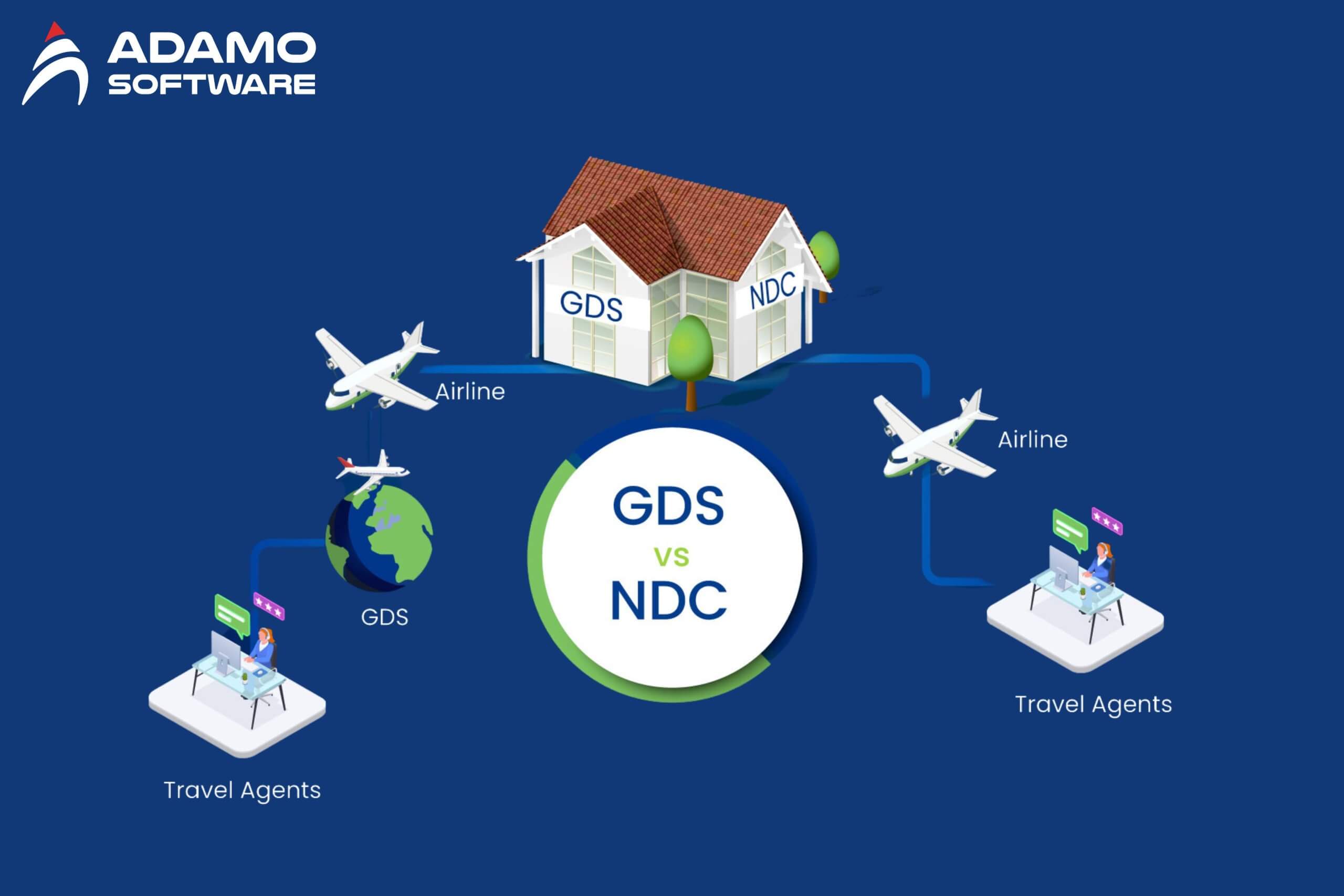
1. Technology and Structure
- GDS
GDS is a reservoir that aims to combine services like flights, accommodations, car rentals, and others into a single fulfillment point. It employs traditional technology. This has been effective for many years, but it cannot integrate new solutions that can meet the new requirements of travelers.
- NDC
NDC IS modern API technology that is developed by IATA. It offers airlines an uncomplicated and exclusive means of presenting their offers to travel sellers without intermediaries. There is a need to update and change it more frequently than in the past. Modern systems work well, and therefore so does NDC.
This difference in technology perfectly indicates what the GDS vs NDC discussion is about. The NDC is much newer and has a different design than the GDS.
2. Content Delivery
- GDS
Giving standard content, GDS provides agencies with a homogeneous presentation of fares, and information on availability of the seats. However, it is not always effective enough to deliver more detailed information such as seat space, additional services, or sales promotions.
- NDC
NDC empowers the airlines to deliver comprehensive information, including text and images of the particular product on offer and real-time stock information. It also supports billing models, such as a flight ticket containing baggage allowance and in-flight meals. Therefore, the airline can upsell its services.
For airlines that like to target and interface with their consumers personally, one of the major benefits of NDC over GDS is the capacity for presenting escalated and more elaborate data.
3. Pricing and Ancillaries
- GDS
GDS depends on static pricing models, which do not adjust to market dynamics. It also fails to harmonize quick sales such as Wi-Fi, extra seats, or excess baggage charges.
- NDC
NDC advocates for fare modeling that can be adjusted by the airlines in their real-time operations. The adjustment depends on the demand, competition, and the customer’s behavior. This way it also enables plug-and-play incorporation of supplementary services and so delivers consumers a more focused and complete travel booking.
This price flexibility and the additional offerings also set GDS against NDC. NDC seems to be the more suitable option for dynamic and customer-oriented approaches.
4. Customer Experience
- GDS
Although GDS is fast and offers strong coverage for all main players in the market, it gives a uniform booking approach. Customers often get just enough information and choice, and this does not tally with the modern mobility that customers demand.
- NDC
NDC’s objectives include offering its customers customized offers, recommendations, and value about booking facilities. This experience is in line with the lifestyle of today’s technologically savvy and experiential traveler.
As we’ve seen between GDS and NDC, there is no doubt that customers are more involved and have more flexibility when using NDC.
5. Adoption and Usage
- GDS
Some principal adoption segments where GDS has been implemented are the traditional travel agencies and corporate travel management companies. Because of its widespread use and recognition, it remains a reliable platform for massive, routine-type reservations.
- NDC
The adoption of NDCs is on the rise among airlines and modern OTAs (online travel agencies). This model serves best those companies that focus on innovation, customization, and the immediacy of customer interaction.
The decision between GDS vs NDC is a question of which is more important: sticking with a tried and tested method (GDS) or seeking innovative ways of doing things and creating custom solutions (NDC).
6. Users of GDS vs NDC: Traditional vs Modern Needs
- GDS
The main users of GDS are old-fashioned travel agents and corporate travel management companies. It also includes large companies that need precise and systematic norms and procedures. These users prioritize the safety and availability of services across the globe. They also value using a single platform to purchase several services. For example, flights and accommodation. While new entrants are offering creative solutions and advancements in mature ones, GDS continues to be an ideal tool for those businesses that work with large numbers of bookings and large-scale corporate travel.
- NDC
Due to its flexibility and focus on travelers’ needs, NDC is especially loved and applied by airlines, new-generation TAs, and web scales. These users take advantage of NDC to generate dynamic prices, offers, and rich content. Small businesses, OTA’s, and companies targeting Millennial travelers prefer the NDC distribution model. It helps them keep up to date with the ever-changing market.
Conclusion
Through the comparison of GDS vs NDC, a set of distinctive features of the conventional and advanced model of travel distribution becomes apparent. Considering stability and international coverage, GDS can be regarded as the best for dealers who need to implement simple, standardized solutions. Consequently, NDC differs from traditional approaches to selling products. It utilizes new technology and develops individualized consumer offers and flexible prices.
Similarly, as the travel industry continues to change, the decision between GDS vs NDC will always lie with the specific aims of the airlines, the travel agencies, or the consumers. Both systems have their advantages. However, it can be anticipated that further development will tilt in favor of NDC due to the ability to adjust to the customers’ needs within the supply chain.
III. Implementing GDS and NDC Technologies: Why Adamo Software is your ideal partner

Adamo Software is especially experienced in travel technology and thus provides custom travel and hospitality software development solutions to adapt GDS and NDC solutions. They point out that their team focuses on offering platforms from GDS to NDC that can ease the transition for companies willing to be innovative while still desiring stability.
The company knows the difference between GDS vs NDC, and their team will sit down with clients to help them determine the right way to navigate the more detailed issue. Whether it’s providing broad travel booking services or creating custom API platforms, they supply systems that are sustainable and easy to use. Through cooperation with Adamo Software, companies can play with GDS and NDC and remain leaders in the coming travel industry.
FAQs
1. What is the key difference between GDS and NDC?
The main difference between GDS and NCD involves the type of technology used and working way. GDS applies a centralized system to consolidate travel services. While NDC applies an advanced API technology that provides direct links between airlines and travel agencies. NDC works with opportunities for price discrimination and changing offers, while one of the primary functions of GDS is to provide standardized data.
2. Which is better for personalized travel offers: GDS or NDC?
If we focus on the results of segment targeting, then NDC performs better in the issue of personalized offers. In contrast with GDS, which delivers fixed and general content, NDC enables companies to deliver information, recommendations and offers that are far more comprehensive and relevant to clients. This is in contrast to smaller players such as NDC, which does have key benefits and predictions such as this personalization in GDS vs NDC.
3. Can small travel agencies benefit from NDC?
Yes, small travel agencies can also obtain some advantages from NDC. Since it provides them with the ability to work with dynamic and newly developed price and content models. Nevertheless, some agencies continue to use GDS for its ease of use and the availability of as complete stock as possible. The major deciding factor between GDS and NDC would be the agency’s needs. Whether that is traditional bookings or more customer-centric approaches.
4. Is GDS becoming outdated with the rise of NDC?
Thus, while recognizing NDC is getting more and more adopted, GDS is not entirely out of date. Apart from the travel and bulk booking domain, Sabre remains a trusted and heavily employed system for business travel. However, as the GDS & NDC war rages on, it is here that NDC seems trendy for the business that hugs innovation & customer relevancy.
5. Which is more cost-effective: GDS or NDC?
NDC is cheaper for airlines than based solutions in terms of dependency on third-party aggregators. However, GDS is still useful to travel agencies that require information on several suppliers in one location. Whether GDS is indeed a more cost-effective approach than NDC depends again on the specifics of the business in consideration.




